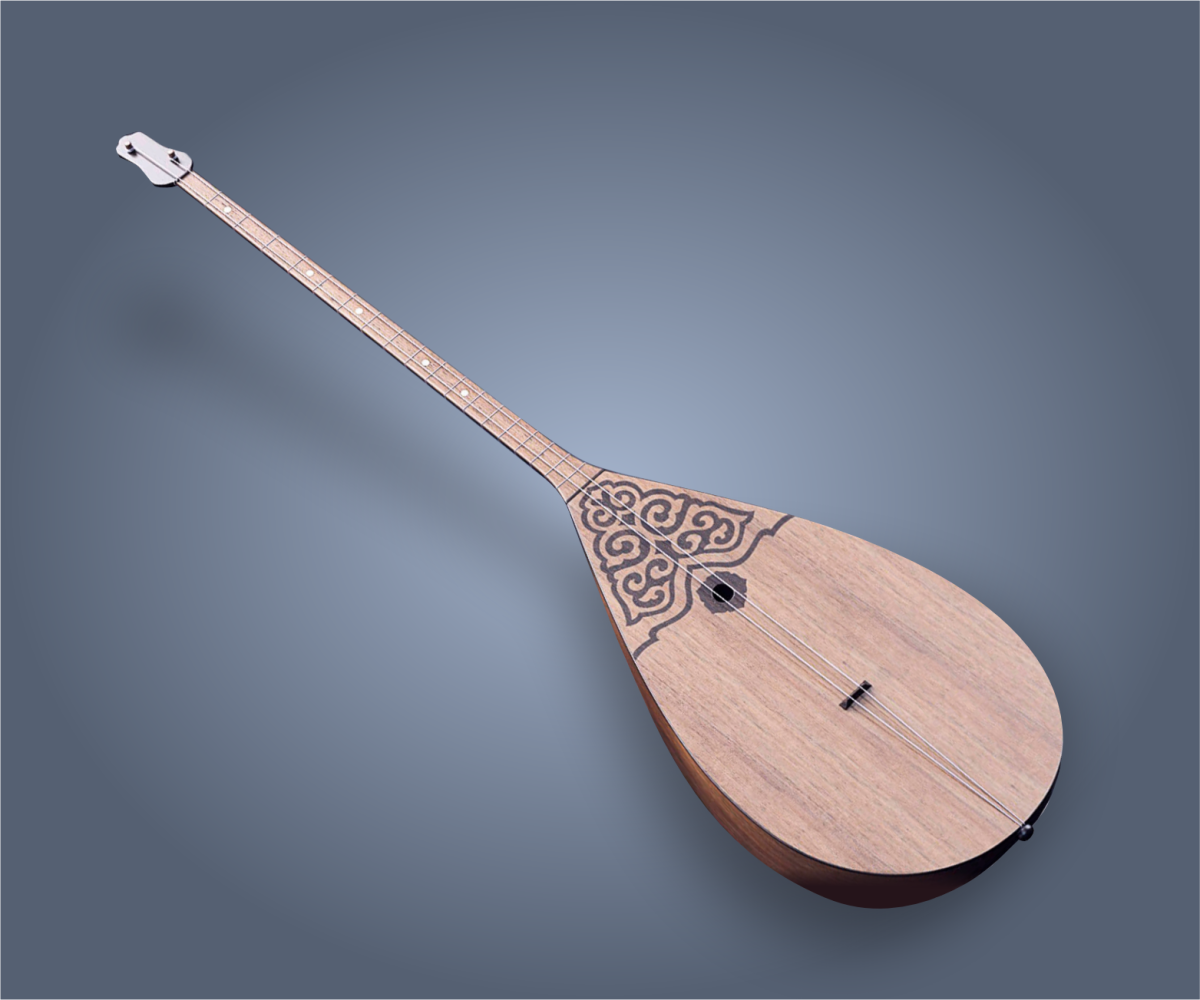DOMBRA is an outstanding musical instrument among all instruments of the Kazakh people.
Dombra is a favorite instrument of all the people, a widespread instrument with a rich history. In the history of the nation, dombra shared all the grief and sorrows, happiness in half with the people, was a consolation in difficult times. Dombra is the most ancient type of string instruments.
In the XIX century dombra was the most common instrument in the life of the people.
The instrument consists of several parts. These are: the head (also called the palm), pegs, frets, neck, body, deck, nut (shaitan tiek, basic tiek, tabaldyryk tiek) and strings. Each component of the instrument has its own name. For example, the dombra has three nuts, the first on which the strings are fastened and is located below the case, is called “okshe tiek” (or “kepil”, “tuime”). The second is the main nut, mounted on the deck and shifted in different directions. The third – “upper nut” is located between the neck and pegs.
Legend about the dombra: It was a long time ago. A very long time ago ... Even when the dombra was four-stringed.
The great and cruel Khan (King) Temujin, known in the history of the ancient world as Genghis Khan, conquered and united many Turkic peoples, lived in the world. He had an older son from first wife Borte, named Jochi. Jochi khan also became a great commander who participated, along with his father, in the conquests of Central Asia.
Genghis Khan was a cruel ruler, whose anger was feared not only by enemies, but also by subordinates. Then the life of the nomads consisted in the conquest of foreign lands, expanding the territorial borders of the Mughal steppe state (as the Mongols were called before). Between the wars, formidable steppes engaged in cattle breeding and hunting. The children of Genghis Khan also liked to hunt wild animals.
Once, his beloved son – Jochi did not return from the hunt and the khan sent messengers to the steppe in order to find a son or bring news of his fate.
In those years, the Turks, including the Mongols, had a law: to reward generously for the good «red» news, and severely punish for bad «black» news.
Upon learning of the death of a young khan, the messengers were afraid of the anger of a formidable father and did not return. Genghis Khan rushed about in a fit of rage, demanding to bring him at least some news about the fate of the heir. But everything was in vain. The messengers were afraid of cruel execution and did not dare to reveal, to the inconsolable father, the truth.
And then the old akyn (poet) came to the khan. He lived a long life and was not afraid of death. Bowing to the lord, he said: «Oh, great khan, your justice has no limits. Listen to my dombra and you will learn about the fate of your son».
And a sad tale poured over how the young khan Jochi was hunting wild kulans, shooting one of them. But the wounded kulan was furious and, having kicked the hunter, struck him to death...
For a long time sang dombra, talking about an unsuccessful hunt, for a long time tears flowed from the cruel ruler...
And then the khan ordered to execute the dombra. And they poured hot lead on it from a bucket.
Moaned the dombra, its strings rang for the last time. And two of the four strings could not bear the pain... burst.
Since then, the dombra has only two strings left, but it still sings.
... many legends are about dombra and this is one of them.
